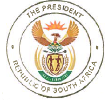PRESIDENT ZUMA MEETS WITH SENIOR BUSINESS LEADERS
President Jacob Zuma met with business leaders at the Sefako Makgatho Presidential Guest House yesterday, 28 April 2017.
The President had asked to see the CEOs ahead of the World Economic Forum Africa meeting that will take place in Durban on 3-5 May, to discuss the country’s approach to the meeting which offers key investment marketing opportunities for the country.
The CEOs used the opportunity to table issues that are of concern to them, some of which are in the public domain and related to recent developments in the country and others aimed at improving the way government manages economic entities under its control, which they are keen for the President and government to look into.
The President appreciated the frankness and also the constructive spirit in which the issues were raised. The two parties agreed to meet soon to discuss the issues raised with a view to promoting unity in action in meeting the challenges facing the country.
On some of the issues in the public domain that are generally of concern to business include the nuclear programme. The President reiterated that the programme would be implemented at a scale and pace that the country could afford, as he has stated in the State of the Nation Address and other platforms.
On the Minerals and Petroleum Resources Development Amendment (MPRDA) Bill, the President referred it back to Parliament to attend to the issues he had raised that would not pass Constitutional muster. In March 2016, the National Assembly referred the MPRDA Bill to the Parliamentary Portfolio Committee on Mineral Resources to consider the issues raised by the President.
In October 2016 the committee adopted a report on the MPRDA Bill and on the 2nd of November 2016, the National Assembly referred the Bill to the National Council of Provinces to consider the issues which were raised by the President relating to the public consultation process undertaken by Provincial legislatures. The Bill has not yet been returned to the President by Parliament. He looks forward to its successful processing by the NCOP, as its finalisation will contribute towards the ease of doing business in this country.
On concerns about possible economic policy changes in light of the recent appointment of new Ministers, the President indicated that the governing party, the ANC, discusses and finalizes policies at its national conference every five years, and that all policies thus remain the same, with the difference being possible in the style and emphasis of each Minister with regards to the implementation of the existing policies and programmes.
Government also remains committed to fiscal discipline and consolidation that stabilises the rise in public debt.
“Business and government are important pillars in our country that must hold the country together and the two sectors need to be able to work together for the good of the country,’’ said the President who made a commitment to convene another government-business session without much delay.
***
PRESIDENT ZUMA SIGNS FICA BILL INTO LAW
President Jacob Zuma has signed the Financial Intelligence Centre Amendment (FICA) bill into law.
The Financial Intelligence Centre Amendment Act, assented by the President, amends the Financial Intelligence Centre Act, 2001. The 2001 Act and other related Acts aim to combat money laundering and the financing of terrorism.
The President is now satisfied that the Act addresses the constitutional concerns he had raised about warrantless searches.
These amendments to the Financial Intelligence Amendment Act further strengthen the transparency and integrity of the South African financial system in its objectives to combat financial crimes, which include tax evasion, money laundering and the financing of terrorism and illicit financial flows. The amendments also make it harder for persons who are involved in illegitimate activities or tax evasion to hide behind legal entities like shell companies and trusts.
Measures to strengthen anti-money laundering and the combating of terrorist financing regulatory framework in the Amendment Act include-
- requiring the identification of beneficial owners to prevent natural persons from misusing legal entities for nefarious purposes like evading tax;
- enhancing the customer due diligence requirements that will ensure that entities fully understand the nature and potential risk posed by their customers;
- providing for the adoption of a risk based approach in the identification and assessment of money laundering and terrorist financing risks, and assist in making customer compliance easier;
- providing for the implementation of the United Nations Security Council Resolutions relating to the freezing of assets relating to persons associated with terrorism;
- safeguarding information in line with the Protection of Personal Information;
- providing for inspection powers for regulatory compliance purposes in accordance with the Constitution; and
- enhancing certain administrative and enforcement mechanisms.
The Amendment Act sends a strong message about South Africa’s commitment to combating financial crime, protecting the integrity of our financial system and our tax base, and remaining part of the global financial system. They further demonstrate South Africa’s membership commitments to the Financial Action Task Force and United Nations.
Statements issued by Dr Bongani Ngqulunga, The Presidency, 29 April 2017

